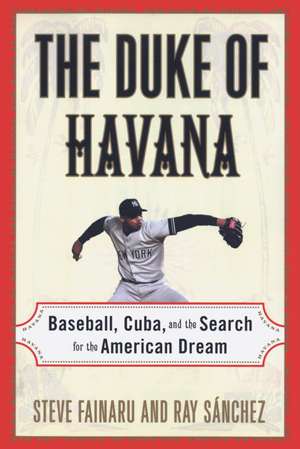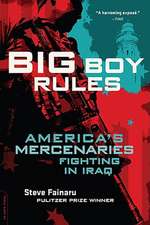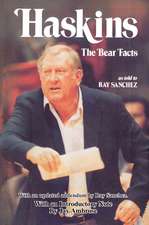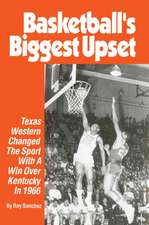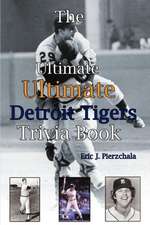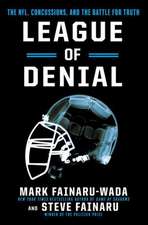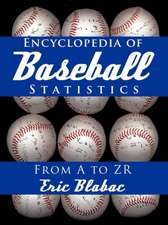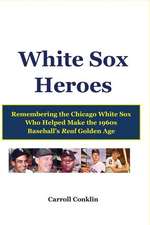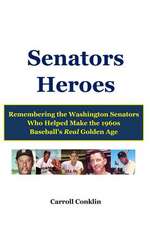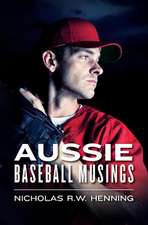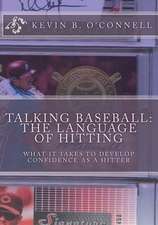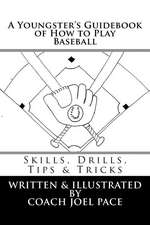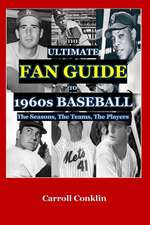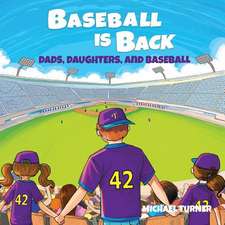The Duke of Havana: Baseball, Cuba, and the Search for the American Dream
Autor Steve Fainaru, Ray Sanchezen Limba Engleză Paperback – 28 feb 2001
The chronicle of El Duque's triumph is at once a window into the slow death of Cuban socialism and one of the most remarkable sports stories of all time. Once hailed as a paragon of Castro's revolution, the finest pitcher in modern Cuban history was banned from baseball for life for allegedly plotting to defect. Instead of accepting his punishment, he fearlessly fought back, defying the Communist party authorities, vowing to pitch again, and ultimately fleeing his country in the bowels of a thirty-foot fishing boat.
Here, for the first time and in astonishing detail, the secrets behind El Duque's persecution and escape are revealed. Moving from the crumbling streets of post Cold War Havana to the polarized world of exile Miami, from the deadly Florida Straits to the hallowed grounds of Yankee Stadium, it is a story of cloak-and-dagger adventure, audacious secret plots, the pull of big money, and the historic collision of ideologies.
Present throughout are the larger-than-life characters who converged at this bizarre intersection of baseball and politics: El Duque himself, Fidel Castro, the Miami sports agent Joe Cubas, the late John Cardinal O'Connor along with scouts, smugglers, and the Cuban ballplayers who gave up their lives as tools of socialism to test the free market and chase their major-league dreams.
Reported in the United States and Cuba by two award-winning journalists who became part of the story they were covering, The Duke of Havana is a riveting saga of sports, politics, liberation, and greed.
From the Hardcover edition.
Preț: 121.28 lei
Nou
Puncte Express: 182
Preț estimativ în valută:
23.21€ • 24.14$ • 19.16£
23.21€ • 24.14$ • 19.16£
Carte disponibilă
Livrare economică 25 martie-08 aprilie
Preluare comenzi: 021 569.72.76
Specificații
ISBN-13: 9780812992564
ISBN-10: 0812992563
Pagini: 376
Dimensiuni: 152 x 229 x 21 mm
Greutate: 0.55 kg
Editura: Villard Books
ISBN-10: 0812992563
Pagini: 376
Dimensiuni: 152 x 229 x 21 mm
Greutate: 0.55 kg
Editura: Villard Books
Extras
Chapter One
Todo Bien
The day he dropped dead, Arnaldo Hernández had never been more alive. He had begun his morning early, clearing a flowerbed for his girlfriend, Arelis Ruiz, and burning the weeds and the dead leaves in a mini bonfire in front of their house in rural Havana. Then he headed out. It was April 22, 1994, an ordinary day, another day to get by. Arnaldo had been working two jobs. On most days he clipped hair for five pesos a head at the local barbershop or occasionally on his front porch. On nights and weekends, he manned the front door of the Circulo Social, a community center and disco, tossing out the bad drunks and letting in his friends for free. He also played first base for San Miguel, a provincial league team on the other side of the capital. With relentless good cheer, he shuttled between these various responsibilities, shouting out "Todo bién!" from the seat of his Chinese-made bicycle, a beater that he often loaded up with his girlfriend, his glove and his beloved white poodle, Duque. He seemed more than able to balance it all. He was thirty years old, six-foot-four, well over two hundred pounds. "He had so much energy," said Arelis. "Sometimes he'd make these trips all day without eating."
Arnaldo and his younger brother, Orlando, had grown up inseparable. The boys were less than two years apart in age, and they had slept in the same bed until they were in their teens. The bed had finally collapsed one evening under the collective bulk of their expanding, man-child bodies. "Then we moved to the floor," recalled Orlando. Together the boys had acquired an obsession with baseball-the obsession, of course, of the entire nation, but also "the family business," as their uncle "Miñosito," a slick infielder in his own right, had put it. Arnaldo had been huge, "an animal," according to his uncle, a pitcher with a terrifying fastball and a burning ambition to follow in the footsteps of his colorful father, Arnaldo Hernández Montero, the original "El Duque." Orlando was smaller, craftier, more creative on the mound, blessed even as a youth with what one of his coaches called a perra curva, a bitch of a curve. The boys often slept with their gloves on, so as to make it that much easier to hit the field in the morning. "We slept with tremendous dignity," Orlando said years later. "Every day, when we went to bed, when we got up, we were thinking about baseball."
Later on, though, the brothers drifted apart, divided not so much by bad blood as by the economic earthquake that was splitting apart the country. Nineteen ninety-four was the worst year of a bleak period in Cuban history known as "the Special Period in Time of Peace." The name was an attempt by Fidel to recapture the early romance of the revolution, the adventure and the blind sacrifice but to most Cubans it signified only pitch-darkness and want. The Soviet Union had collapsed, and with it had gone the economic assistance that for decades had propped up Cuba's economy. Havana, a cradle of good times regardless of political ideology, was suddenly a desperate, crumbling city. During the day, the streets were overrun by hundreds of thousands of bicycles, substitutes for motorized vehicles in a society that lacked fuel. At dusk, the lights often flickered out, plunging the capital into darkness until morning. For many Cubans, the era was defined by these sweltering, silent evenings. In the darkness, parents waved pieces of cardboard over their children as they slept. "That was all you could do to keep the mosquitoes away," said Roberto Martinez, a longtime friend of the Hernández family. "It was a black time. As a Cuban, it touched every part of your life."
Some had it a little easier, though, and Orlando Hernández was among them. As a star pitcher for the Havana Industriales and Team Cuba, the powerhouse national baseball team, he was a niño lindo of the revolution, one of Fidel's favorite sons. As his career advanced, the Cuban Sports Ministry had given him a series of bigger apartments and, finally, in the early nineties, a white three-bedroom house in Calixto Suárez, a neighborhood tucked behind Terminal 2 of the José Martí International Airport. El Duque lived with his wife, Norma, and their two young daughters, Yahumara and Steffi, and the pitcher's growing cache of trophies and medals, which he kept in a glass case in the living room. El Duque was not immune to the nation's problems, the blackouts and the scarcity. But the government gave him and other top athletes full run of the diplomercados, the state-run dollar stores that were kept well stocked with meat and poultry, soap and cooking oil-in short, everything that was disappearing from the shelves of bodegas all across the country.
His brother Arnaldo lived in a different world, the one occupied by most Cubans of the era. Arnaldo's baseball career had never really taken off, a bitter disappointment that his relatives attributed to a horrific injury he suffered in his teens. He and Arelis were living out the Special Period in a tiny house that her brother had abandoned when he moved to Russia with his new wife, a former Soviet engineer. The house was a squat concrete box in the sticks of rural Havana. It sat at the end of a dirt road that often dissolved in the afternoon rains. Arnaldo and Arelis sometimes talked about getting married, like Orlando and Norma, but it was simply impossible; the reception alone would be too expensive. "Anybody can go and just sign the papers, but you have to have a big fiesta, you have to have good memories," Arelis told me years later. "I decided that if it was going to be garbage, I'd rather not get married."
At times it seemed as if the couple were surviving on Arnaldo's buoyant personality alone. El Duque's older brother used his boundless energy, his contagious exuberance, to support his family. He worked constantly, and when he wasn't working he hustled. When he and Arelis ran out of cooking oil, a constant occurrence, Arnaldo would ride his bike down to the local bakery, where his friends would slip him some pork fat, sometimes in exchange for a haircut. "If we needed rice or anything else, he would just go out and get them because he got along with everybody," said Arelis. At night, the couple would light candles and read. Outside, all was black and silent except the sounds of a few livestock and the clucking of chickens. There was rarely any electricity, and thus no fans, so when it was time to sleep, Arnaldo and Arelis would set their mattress at the threshold of the front door and sleep facing the thick night air.
Despite all the hardships, Arnaldo, by all accounts, was happy; seemingly he was always happy. He loved working as a bouncer at the Circulo Social, the disco, because it allowed him to mingle with his friends. He stood sentry at the front door, a towering figure with a coffee-colored complexion, his father's complexion, lighter than his brother's, taking tickets and flirting with women and greeting people with his signature "Todo bién!" Even though Orlando had long surpassed him as a ballplayer, he still lived for the game. On weekends he set out on his bike with Duque-the poodle, not his brother. "With one jump, the dog would land on the bicycle, like a person," said Arelis. "It was up and down, it went everywhere. The dog really was like a person. He ate what we ate." Even in his late twenties Arnaldo would head down to the field every weekend and play all-day pickup games for money-60 pesos here, 120 pesos there-each team pooling its meager resources. Afterward he would bathe and pedal off to work or stay home and write poems by candlelight. Growing up, Arnaldo had struggled as a student; Orlando had always shined. But later, Arnaldo discovered the joys of reading and writing. He devoured mysteries and crime novels. He wrote poems about his girlfriend, about baseball, about his chickens and his poodle. "Then one day the dog got sick; it got some kind of bacteria and died," said Arelis. "Arnaldo cried and cried. He buried the dog near the patio. He wrote a poem and dedicated it to the dog. He placed it over him, and then he buried the poem along with the dog."
Right before he died, Arelis said, Arnaldo had been writing poems lamenting the distance between him and his brother. It was not bitterness, just a tug of regret that the relationship was not what it had been. Growing up, Orlando had followed his brother everywhere. The boys' father had left when they were little, and Arnaldo, in many ways, had been the man of the house. Now their roles had changed. Orlando was a national figure, a hero of the revolution, the next "El Duque." He brought back exotic trinkets from his travels abroad: necklaces, T-shirts, an aluminum bat that Arnaldo loved so much he insisted on keeping it next to his bed. ("Do you know how obsessed you have to be to sleep with a bat?" said his mother, María Julia, shaking her head years later.) But there had been a series of small mix-ups-and, of course, the widening economic gap in their lives. The brothers lived within a few miles of each other, but the distance seemed increasingly great.
It was dusk when I spoke to Arelis Ruiz, a light-skinned woman with dark hair who face glowed when she reminisced about her late boyfriend. We sat in the cramped living room of the house where she and Arnaldo had lived. At one point, Arelis excused herself to pick up her ten-month-old daughter, scurrying over the plywood base of her makeshift playpen. Arelis set the baby down in front of a black-and-white television, turned to cartoons, apologized, then, quietly, began to sob. When she used to come home, she told me, she would often find Arnaldo surrounded by children, like the Pied Piper of the neighborhood. The children ran after him as he pedaled through the streets on his bike. She and Arnaldo had wanted to have children of their own, she said, but they had been waiting until they could afford them, the time when the Special Period would finally come to an end. She said she wished she could pull out Arnaldo's old poems and read a few to me. But a few years after Arnaldo died, a new boyfriend had come upon the poems in a closet. In a jealous fit, the boyfriend had carried the poems into the front yard, hundreds stacked in a cardboard box, and used them to make his own little bonfire.
"You cannot tell the story of Orlando "El Duque" Hernández without telling the story of his brother, Arnaldo," advised a close friend of El Duque's, known universally as Lache, as we sat on his front porch in Havana one afternoon. It is in that spirit that we begin this story.
Arnaldo had been named after his father, Arnaldo Hernández Montero, the original El Duque. The father had been a talented right-handed pitcher, and from the beginning he envisioned creating a legacy of hurlers. In Latin America, a child commonly inherits both parents' last names. And so the first pitcher born to Arnaldo "El Duque" Hernández and his wife, María Julia Pedroso, was called Arnaldo Hernández Pedroso-aka El Duque.
Arnaldo-the father-liked the name so much that he decided to make it a trend. He wanted to name his second-born son Arnoldo, changing just one letter to distinguish between the two boys. This second boy, just like his father and his older brother, would also grow up a pitcher and would also be known as El Duque.
Several years later, however, the father's aggressive strategy for legacy building began to collapse. Legend has it that the younger boy, Arnoldo, turned out to be independent and headstrong and, among other things, he rebelled against his own name. "Yo soy Orlando!" ("I am Orlando!), he would snap, rejecting what was, after all, essentially the same name as his older brother's.
"It's true," the boys' father, the original El Duque, told me some thirty years later. "Orlando's real name was Arnoldo. I had wanted a make it a trilogy, but he didn't like it. So we called him Orlando."
Arnaldo and Orlando were four and two, respectively, when father went away, to play baseball and breed pitchers on other parts of the island. They grew up with María Julia and her extended family. The family was packed into adjoining row houses next to the church in Wajay. There was María Julia and the boys (including another son, Gerardo, from María Julia's second marriage); María Julia's parents; a cousin; and a diminutive uncle, Miñosito (Little Miñoso), so named because of his resemblance to Orestes "Minnie" Miñoso, the sparkplug of the Chicago White Sox of the 1950s. The houses were white and looked vaguely Spanish; three small rooms led from one to the next, from the front of the house to the back. Dirty concrete walls separated the rooms. Conditions in Cuba are better than they used to be, but a recent tour of the El Duque family home had to be conducted by candlelight because the electricity-emitted by naked light bulbs strung from the crumbling ceiling-had gone out.
Arnaldo and Orlando slept together in the middle room with their grandparents Juan Antonio Pedroso and Antolina Cruz. Before the 1959 revolution, Juan Antonio had owned a country store, Taller Pedroso, from which he repaired bicycles, shined shoes and delivered the newspaper and the town mail. He was a permanent fixture on the southwest Havana run, from Wajay to La Lisa, dropping off papers with the local vendors and, along the way, picking up shoes that he would shine and return the next day. He earned a decent living and cut a dashing figure in his small town. His neighbors, most of them white, called him Charoli, or patent leather, something brilliantly black. (The nickname was apparently meant as a term of endearment and was taken as one.) Juan Antonio was also insistently apolitical. To him the Cuban revolution was a distant adventure, with little relevance to his own life, and even after Fidel took Havana he paid it little attention. That changed one afternoon in 1967 when the government launched a crackdown against private enterprise. The first wave of expropriations, in the early sixties, had hit the big companies: Bacardi, IT&T, United Fruit, the American banks. This second one was aimed at small businesses like Taller Pedroso.
From the Hardcover edition.
Todo Bien
The day he dropped dead, Arnaldo Hernández had never been more alive. He had begun his morning early, clearing a flowerbed for his girlfriend, Arelis Ruiz, and burning the weeds and the dead leaves in a mini bonfire in front of their house in rural Havana. Then he headed out. It was April 22, 1994, an ordinary day, another day to get by. Arnaldo had been working two jobs. On most days he clipped hair for five pesos a head at the local barbershop or occasionally on his front porch. On nights and weekends, he manned the front door of the Circulo Social, a community center and disco, tossing out the bad drunks and letting in his friends for free. He also played first base for San Miguel, a provincial league team on the other side of the capital. With relentless good cheer, he shuttled between these various responsibilities, shouting out "Todo bién!" from the seat of his Chinese-made bicycle, a beater that he often loaded up with his girlfriend, his glove and his beloved white poodle, Duque. He seemed more than able to balance it all. He was thirty years old, six-foot-four, well over two hundred pounds. "He had so much energy," said Arelis. "Sometimes he'd make these trips all day without eating."
Arnaldo and his younger brother, Orlando, had grown up inseparable. The boys were less than two years apart in age, and they had slept in the same bed until they were in their teens. The bed had finally collapsed one evening under the collective bulk of their expanding, man-child bodies. "Then we moved to the floor," recalled Orlando. Together the boys had acquired an obsession with baseball-the obsession, of course, of the entire nation, but also "the family business," as their uncle "Miñosito," a slick infielder in his own right, had put it. Arnaldo had been huge, "an animal," according to his uncle, a pitcher with a terrifying fastball and a burning ambition to follow in the footsteps of his colorful father, Arnaldo Hernández Montero, the original "El Duque." Orlando was smaller, craftier, more creative on the mound, blessed even as a youth with what one of his coaches called a perra curva, a bitch of a curve. The boys often slept with their gloves on, so as to make it that much easier to hit the field in the morning. "We slept with tremendous dignity," Orlando said years later. "Every day, when we went to bed, when we got up, we were thinking about baseball."
Later on, though, the brothers drifted apart, divided not so much by bad blood as by the economic earthquake that was splitting apart the country. Nineteen ninety-four was the worst year of a bleak period in Cuban history known as "the Special Period in Time of Peace." The name was an attempt by Fidel to recapture the early romance of the revolution, the adventure and the blind sacrifice but to most Cubans it signified only pitch-darkness and want. The Soviet Union had collapsed, and with it had gone the economic assistance that for decades had propped up Cuba's economy. Havana, a cradle of good times regardless of political ideology, was suddenly a desperate, crumbling city. During the day, the streets were overrun by hundreds of thousands of bicycles, substitutes for motorized vehicles in a society that lacked fuel. At dusk, the lights often flickered out, plunging the capital into darkness until morning. For many Cubans, the era was defined by these sweltering, silent evenings. In the darkness, parents waved pieces of cardboard over their children as they slept. "That was all you could do to keep the mosquitoes away," said Roberto Martinez, a longtime friend of the Hernández family. "It was a black time. As a Cuban, it touched every part of your life."
Some had it a little easier, though, and Orlando Hernández was among them. As a star pitcher for the Havana Industriales and Team Cuba, the powerhouse national baseball team, he was a niño lindo of the revolution, one of Fidel's favorite sons. As his career advanced, the Cuban Sports Ministry had given him a series of bigger apartments and, finally, in the early nineties, a white three-bedroom house in Calixto Suárez, a neighborhood tucked behind Terminal 2 of the José Martí International Airport. El Duque lived with his wife, Norma, and their two young daughters, Yahumara and Steffi, and the pitcher's growing cache of trophies and medals, which he kept in a glass case in the living room. El Duque was not immune to the nation's problems, the blackouts and the scarcity. But the government gave him and other top athletes full run of the diplomercados, the state-run dollar stores that were kept well stocked with meat and poultry, soap and cooking oil-in short, everything that was disappearing from the shelves of bodegas all across the country.
His brother Arnaldo lived in a different world, the one occupied by most Cubans of the era. Arnaldo's baseball career had never really taken off, a bitter disappointment that his relatives attributed to a horrific injury he suffered in his teens. He and Arelis were living out the Special Period in a tiny house that her brother had abandoned when he moved to Russia with his new wife, a former Soviet engineer. The house was a squat concrete box in the sticks of rural Havana. It sat at the end of a dirt road that often dissolved in the afternoon rains. Arnaldo and Arelis sometimes talked about getting married, like Orlando and Norma, but it was simply impossible; the reception alone would be too expensive. "Anybody can go and just sign the papers, but you have to have a big fiesta, you have to have good memories," Arelis told me years later. "I decided that if it was going to be garbage, I'd rather not get married."
At times it seemed as if the couple were surviving on Arnaldo's buoyant personality alone. El Duque's older brother used his boundless energy, his contagious exuberance, to support his family. He worked constantly, and when he wasn't working he hustled. When he and Arelis ran out of cooking oil, a constant occurrence, Arnaldo would ride his bike down to the local bakery, where his friends would slip him some pork fat, sometimes in exchange for a haircut. "If we needed rice or anything else, he would just go out and get them because he got along with everybody," said Arelis. At night, the couple would light candles and read. Outside, all was black and silent except the sounds of a few livestock and the clucking of chickens. There was rarely any electricity, and thus no fans, so when it was time to sleep, Arnaldo and Arelis would set their mattress at the threshold of the front door and sleep facing the thick night air.
Despite all the hardships, Arnaldo, by all accounts, was happy; seemingly he was always happy. He loved working as a bouncer at the Circulo Social, the disco, because it allowed him to mingle with his friends. He stood sentry at the front door, a towering figure with a coffee-colored complexion, his father's complexion, lighter than his brother's, taking tickets and flirting with women and greeting people with his signature "Todo bién!" Even though Orlando had long surpassed him as a ballplayer, he still lived for the game. On weekends he set out on his bike with Duque-the poodle, not his brother. "With one jump, the dog would land on the bicycle, like a person," said Arelis. "It was up and down, it went everywhere. The dog really was like a person. He ate what we ate." Even in his late twenties Arnaldo would head down to the field every weekend and play all-day pickup games for money-60 pesos here, 120 pesos there-each team pooling its meager resources. Afterward he would bathe and pedal off to work or stay home and write poems by candlelight. Growing up, Arnaldo had struggled as a student; Orlando had always shined. But later, Arnaldo discovered the joys of reading and writing. He devoured mysteries and crime novels. He wrote poems about his girlfriend, about baseball, about his chickens and his poodle. "Then one day the dog got sick; it got some kind of bacteria and died," said Arelis. "Arnaldo cried and cried. He buried the dog near the patio. He wrote a poem and dedicated it to the dog. He placed it over him, and then he buried the poem along with the dog."
Right before he died, Arelis said, Arnaldo had been writing poems lamenting the distance between him and his brother. It was not bitterness, just a tug of regret that the relationship was not what it had been. Growing up, Orlando had followed his brother everywhere. The boys' father had left when they were little, and Arnaldo, in many ways, had been the man of the house. Now their roles had changed. Orlando was a national figure, a hero of the revolution, the next "El Duque." He brought back exotic trinkets from his travels abroad: necklaces, T-shirts, an aluminum bat that Arnaldo loved so much he insisted on keeping it next to his bed. ("Do you know how obsessed you have to be to sleep with a bat?" said his mother, María Julia, shaking her head years later.) But there had been a series of small mix-ups-and, of course, the widening economic gap in their lives. The brothers lived within a few miles of each other, but the distance seemed increasingly great.
It was dusk when I spoke to Arelis Ruiz, a light-skinned woman with dark hair who face glowed when she reminisced about her late boyfriend. We sat in the cramped living room of the house where she and Arnaldo had lived. At one point, Arelis excused herself to pick up her ten-month-old daughter, scurrying over the plywood base of her makeshift playpen. Arelis set the baby down in front of a black-and-white television, turned to cartoons, apologized, then, quietly, began to sob. When she used to come home, she told me, she would often find Arnaldo surrounded by children, like the Pied Piper of the neighborhood. The children ran after him as he pedaled through the streets on his bike. She and Arnaldo had wanted to have children of their own, she said, but they had been waiting until they could afford them, the time when the Special Period would finally come to an end. She said she wished she could pull out Arnaldo's old poems and read a few to me. But a few years after Arnaldo died, a new boyfriend had come upon the poems in a closet. In a jealous fit, the boyfriend had carried the poems into the front yard, hundreds stacked in a cardboard box, and used them to make his own little bonfire.
"You cannot tell the story of Orlando "El Duque" Hernández without telling the story of his brother, Arnaldo," advised a close friend of El Duque's, known universally as Lache, as we sat on his front porch in Havana one afternoon. It is in that spirit that we begin this story.
Arnaldo had been named after his father, Arnaldo Hernández Montero, the original El Duque. The father had been a talented right-handed pitcher, and from the beginning he envisioned creating a legacy of hurlers. In Latin America, a child commonly inherits both parents' last names. And so the first pitcher born to Arnaldo "El Duque" Hernández and his wife, María Julia Pedroso, was called Arnaldo Hernández Pedroso-aka El Duque.
Arnaldo-the father-liked the name so much that he decided to make it a trend. He wanted to name his second-born son Arnoldo, changing just one letter to distinguish between the two boys. This second boy, just like his father and his older brother, would also grow up a pitcher and would also be known as El Duque.
Several years later, however, the father's aggressive strategy for legacy building began to collapse. Legend has it that the younger boy, Arnoldo, turned out to be independent and headstrong and, among other things, he rebelled against his own name. "Yo soy Orlando!" ("I am Orlando!), he would snap, rejecting what was, after all, essentially the same name as his older brother's.
"It's true," the boys' father, the original El Duque, told me some thirty years later. "Orlando's real name was Arnoldo. I had wanted a make it a trilogy, but he didn't like it. So we called him Orlando."
Arnaldo and Orlando were four and two, respectively, when father went away, to play baseball and breed pitchers on other parts of the island. They grew up with María Julia and her extended family. The family was packed into adjoining row houses next to the church in Wajay. There was María Julia and the boys (including another son, Gerardo, from María Julia's second marriage); María Julia's parents; a cousin; and a diminutive uncle, Miñosito (Little Miñoso), so named because of his resemblance to Orestes "Minnie" Miñoso, the sparkplug of the Chicago White Sox of the 1950s. The houses were white and looked vaguely Spanish; three small rooms led from one to the next, from the front of the house to the back. Dirty concrete walls separated the rooms. Conditions in Cuba are better than they used to be, but a recent tour of the El Duque family home had to be conducted by candlelight because the electricity-emitted by naked light bulbs strung from the crumbling ceiling-had gone out.
Arnaldo and Orlando slept together in the middle room with their grandparents Juan Antonio Pedroso and Antolina Cruz. Before the 1959 revolution, Juan Antonio had owned a country store, Taller Pedroso, from which he repaired bicycles, shined shoes and delivered the newspaper and the town mail. He was a permanent fixture on the southwest Havana run, from Wajay to La Lisa, dropping off papers with the local vendors and, along the way, picking up shoes that he would shine and return the next day. He earned a decent living and cut a dashing figure in his small town. His neighbors, most of them white, called him Charoli, or patent leather, something brilliantly black. (The nickname was apparently meant as a term of endearment and was taken as one.) Juan Antonio was also insistently apolitical. To him the Cuban revolution was a distant adventure, with little relevance to his own life, and even after Fidel took Havana he paid it little attention. That changed one afternoon in 1967 when the government launched a crackdown against private enterprise. The first wave of expropriations, in the early sixties, had hit the big companies: Bacardi, IT&T, United Fruit, the American banks. This second one was aimed at small businesses like Taller Pedroso.
From the Hardcover edition.
Notă biografică
Steve Fainaru is an investigative sportswriter for The Wash-ington Post. He was a reporter for The Boston Globe for eleven years, covering major-league baseball, Wall Street, and Latin America. He lives in Washington, D.C.
Ray Sanchez writes a column for Newsday, where he served four years as Latin America correspondent. He lives in New York City.
Ray Sanchez writes a column for Newsday, where he served four years as Latin America correspondent. He lives in New York City.
